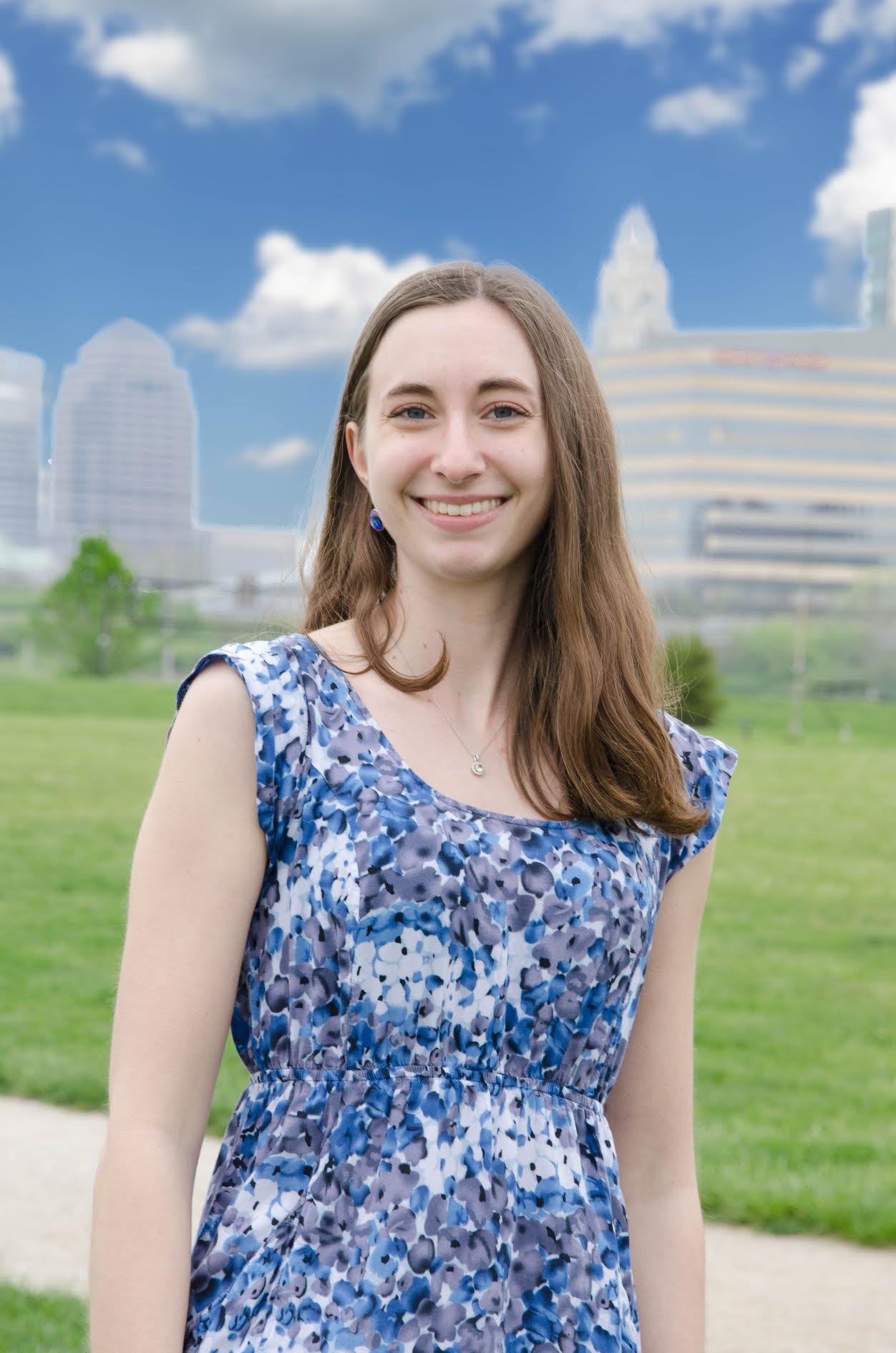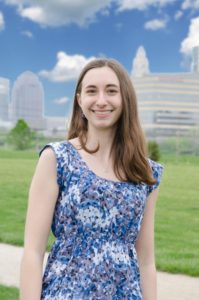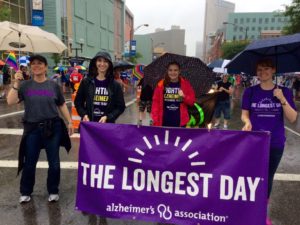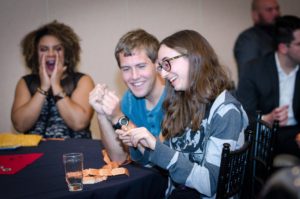Member Spotlight | April


Our April member spotlight is shining on Maya Gosztyla, who has been involved with the Junior Committee for close to 2 years.
Maya is an undergraduate student at Ohio State University studying Neuroscience and Molecular Genetics and is currently serving as the President of Buckeyes Against Alzheimer’s, an undergraduate organization at OSU that focuses on awareness and community service with the mission to combat Alzheimer’s disease.
Read more about Maya below:
How long have you been involved with the Junior Committee and what compelled you to join?
I’ve been involved for nearly two years now. As a future neuroscientist, I spend a lot of time talking to other scientists and students about Alzheimer’s disease. The JC offered the opportunity to connect with another group of passionate individuals who worked behind the scenes on advocacy and fundraising.
How do you serve as a member of the Junior Committee?
At the beginning of every meeting, I take 5 minutes to give the Mission Moment, which is a quick summary of any recent discoveries in Alzheimer’s disease research. This is one of my favorite parts of being on the JC because I get to help everyone keep informed about the research without them needing to pore over these dense science manuscripts. I’m also part of the Recruitment Committee for BvB and I help out with the BvB social media posts.

You’re traveling abroad this summer for a research program; can you tell us about the program & what you will be doing?
This summer, I will spend three months in Lausanne, Switzerland conducting research at EPFL’s Brain Mind Institute. I was fortunate enough to receive funding from both the university and the U.S. Embassy of Switzerland that will allow me to afford this amazing experience. I will be researching the relationship between sleep deprivation and Alzheimer’s disease using mice as the model organism. We are hypothesizing that old brains respond differently to sleep deprivation than young brains, which may put them at a greater risk of developing Alzheimer’s disease. I am so excited to undertake this adventure and possibly make some interesting discoveries!
What do you do in your spare time?
While I definitely indulge in some mindless TV on occasion, usually I like to fill my spare time with things that keep my mind and/or body active. I play the violin in an orchestra on campus and love practicing my favorite tunes. I’m a big lover of exercise (when I have time for it) so on good-weather days you’ll often see me jogging around the Oval or doing some calisthenics. Another hobby of mine is cooking, which is a lot easier said than done when you’re working with a student’s shoestring budget while trying to eat as healthy as possible. At the end of every day, I love curling up with a good book to relax before bed. Currently I’m working my way through Game of Thrones..
If you could spend a day with any one person, who would it be and why?
This is going to sound super geeky, but I’d really love to spend a day with Dr. Robert Tanzi, an Alzheimer’s researcher working at Harvard. He has some really interesting theories about the true cause of the disease and he’s not afraid to risk his reputation by putting some unconventional ideas out there. His lab has done some fascinating work trying to connect invasion of heavy metals in the brain with the process of neurodegeneration, as well as investigating whether brain infection could possibly play a role. I also deeply respect Dr. Tanzi because of his willingness to engage with the public and help educate people about his science. I might even look into his lab for graduate school.
 How do you think being involved with the JC has impacted you?
How do you think being involved with the JC has impacted you?
Seeing everyone’s enthusiasm for my Mission Moments at every meeting was the inspiration for me to start my blog, AlzScience. I use the site to help translate scientific research on Alzheimer’s disease into language that’s accessible to the everyday reader. I used to be really focused on just conducting my research, but being involved with the JC has taught me that I’ll never be satisfied just doing research my entire life. Science communication has become a huge part of my personal identity and it’s morphed into being just as big of a passion for me as my research. Knowing that there are so many people out there who care deeply about the disease but lack the years of scientific education needed to understand research publications reveals a niche that I think scientists like myself need to fill. My career goals have changed because of the JC: while I still dream of becoming a neuroscientist, I now know I’ll also need to find room for science writing and other communication outlets in my eventual career.
Being a student, how do you think you can make the biggest impact on your community?
Students have enormous potential to shape our community. Many people just associate helping people with students planning to attend medical school. For students interested in a PhD track like myself, volunteering is not emphasized at all. However, while I don’t usually engage in what some might consider “typical” volunteering, I find ways to help the community to learn about neuroscience and brain health, topics I’m extremely passionate about. Advocating for research funding and pursuing science communication outlets with the general public are, in my opinion, fundamental aspects of being a scientist. This isn’t just true for tenured researchers—students can contribute too! If you have an area you’re knowledgeable about, find outlets like blogs or public speaking opportunities to educate the public about this topic. Use your STEM education to forge a powerful voice that can advocate for funding and legislature to move your field forward. Sometimes the overwhelming nature of academia and graduate research can make us want to just focus on the science, but we are severely limiting our potential if we spend all of our time at the lab bench. Getting out into the word and reminding the public of the important of scientific progress is just as important as our major discoveries.
We want to thank Maya for her dedication to the Junior Committee and continuing to educate our members on current Alzheimer’s research!